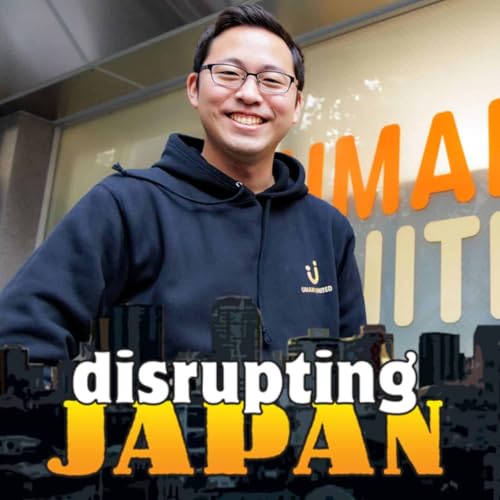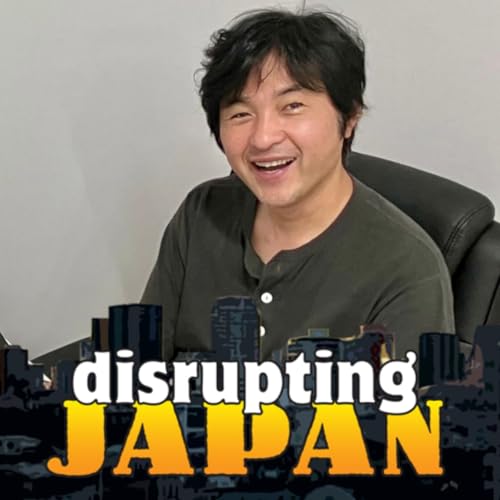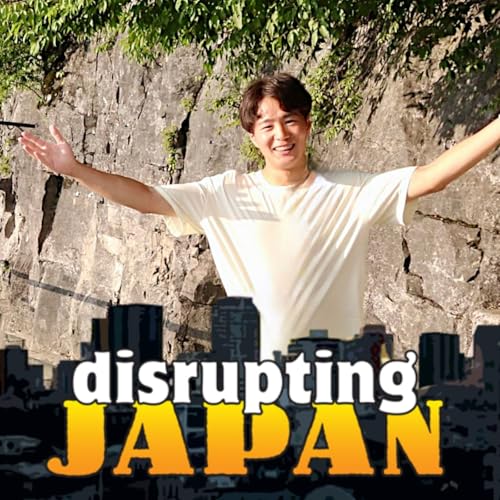Last month I gave lecture at Globis University on what it takes to build an AI startup today. It's no longer early days for AI, and most founders don't have the connections and resources that drive toady's multi-billion dollar seed rounds. However, as I detail, they still have several paths to success. After the lecture I am joined on stage for a panel discussion by Reiji Yamanaka, the managing director of the Kibo Impact Investment Fund, and Kelvin Song, the program director of the Globis MBA program. It's a fascinating discussion, and I think you'll enjoy it. Leave a comment Transcript Welcome to Disrupting Japan, straight talk from Japan's most innovative founders and VCs. I'm Tim Romero, and thanks for joining me. I have a special in-between episode for you today. A few weeks back at Globis University, I gave a lecture to aspiring founders on the best way to start a generative AI startup right now in this time of intense AI competition and funding levels. I cover the different AI business models, promising application spaces, and how to know if you've got an AI startup idea with a good chance of success. Now, the first 30 minutes of this episode is the lecture itself, and then I'm joined on stage by Reiji Yamanaka, the managing director of the Kibo Impact Investment Fund, and Kelvin Song, the program director of the Globis MBA program. And we dive even deeper into these ideas and also talk about how generative AI is likely to affect us all. I hope you enjoy it. So let's get right to the presentation. Presentation Today we're going to talk about how to build a generative AI startup and some important things to keep in mind if you actually decide to do that. Now, before I tell you what we're going to cover, I want to kind of tell you what we are explicitly not going to cover. So first, we're not going to talk about the transformative nature of AI in general, the explosive growth of the market. There's already way too much chatter about that, and I assume if you're even thinking about starting an AI startup, you already know it. Second, I'm not going to offer general advice about starting and growing a startups, although this is a topic that's very close to my heart. I want to focus on what can add the most value to you in this particular seminar. If you want to talk about general start advice, talk to me later. I'll point you in the right direction or ask questions afterwards or during the panel discussion. We'll begin today by talking about four common exit and growth strategies. This is a bit unusual. I don't normally recommend that seed or pre-seed companies focus too much on exit strategy, but these are not normal times. With generative AI, you need to plan your end game from the very beginning. We'll spend the bulk of our time talking about actually building your AI startup. We'll cover some key strategic considerations, and also talk about a few of the most promising targets for AI disruption. Does that sound good? Well, before we get to it, why should you listen to me? And that's a totally reasonable question. So, I've been in Japan for, wow, over 30 years now. Currently a partner at Jira Ventures. It's $300 million corporate venture capital firm that invests in green energy, next generation energy, generation technologies. But in my time here, I've started four of my own startups I've sold two, bankrupted two. So, 50 50, not too bad as far as startups go. I've done a lot of angel investing. I've taught entrepreneurship and corporate innovation at New York University's, Tokyo Campus. I've brought foreign startups into Japan as a country manager. I was tapped by TEPCO to come in and help them spin up TEPCO Ventures. I left TEPCO to run Google for Startups, Japan, swearing I would never go back to energy CVC. After four years at Google, I decided to go back to energy CVC because right now what's happening in energy is just fantastically exciting. Oh, and I also run a podcast called Disrupting Japan, where we sit down and we talk with Japanese startup founders and VCs, not so much about their specific company or portfolio, but what it's like to be an innovator in a culture that really prizes, conformity and what problems these startups are trying to solve. So, you know, please like, and subscribe and all that. Okay, let's get into it. Let's talk about your exit strategy and the possible business models that stem from it. Now, as I mentioned before, this is not the usual way of doing things. At seed stage, founders don't normally need to think too deeply about the exit strategy. If you build a rapidly scaling business that adds value to your customers, M&As IPOs, both paths remain open to you and it'll eventually become clear to you which is your best option. It's not something you normally try to optimize for, not at seed anyway. However, these are not normal times, and if you're building a generative AI startup, your exit strategy will greatly influence how you run your business. So, the ...
続きを読む
一部表示
 2026/02/021分未満
2026/02/021分未満 48 分
48 分 39 分
39 分 2025/11/1047 分
2025/11/1047 分 37 分
37 分 35 分
35 分 2025/09/011 時間 16 分
2025/09/011 時間 16 分 38 分
38 分
